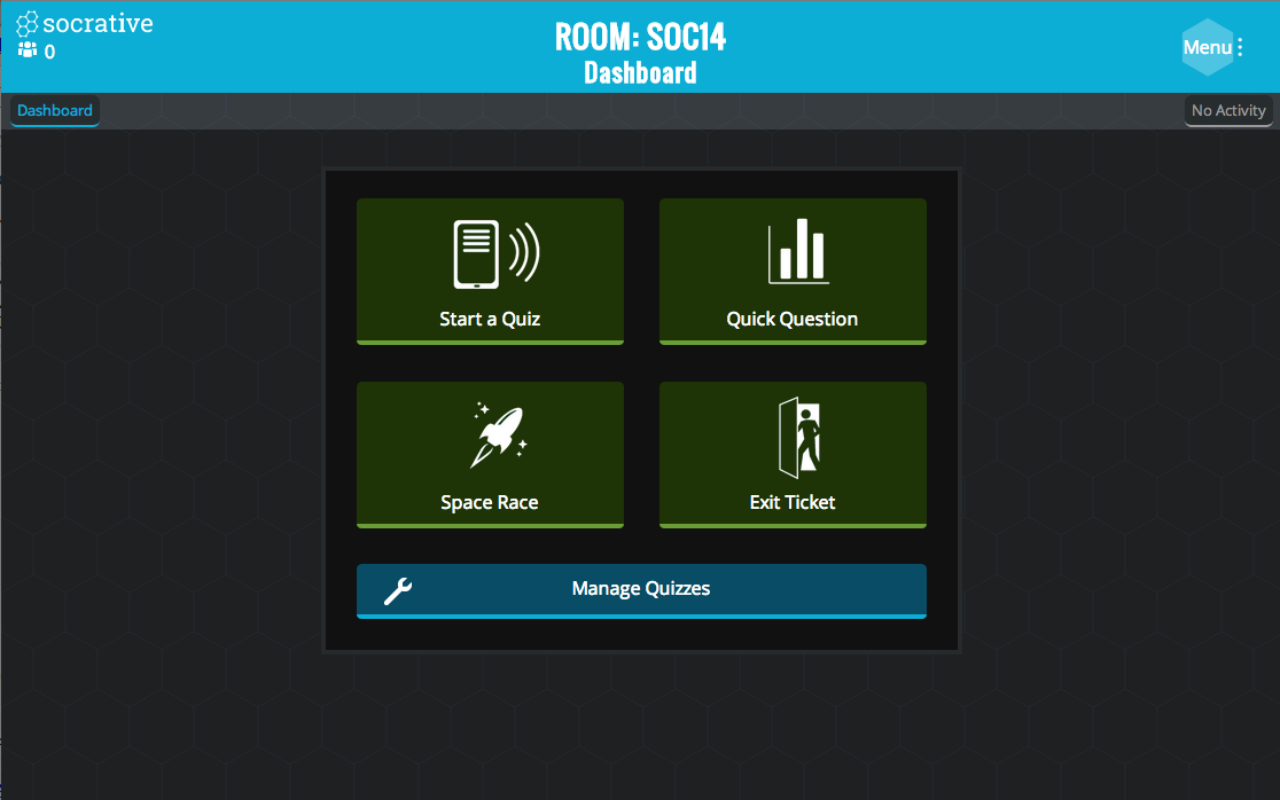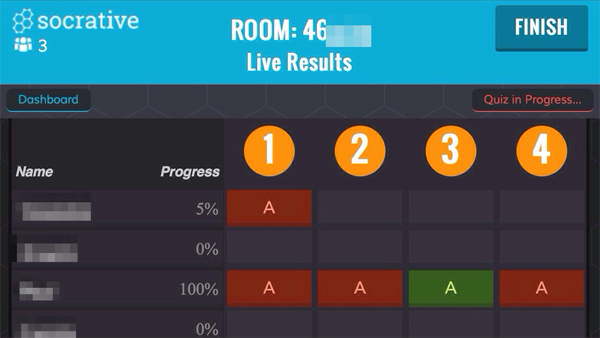I learned about a teaching application called
Socrative at this year's Western States Communication Association Convention in Spokane, Washington. It was a serendipitous discovery because I have been struggling in the course Communication and Culture that I had taught in the Fall of 2014 and this current semester, Spring 2015, with student participation. The course has a biweekly lecture (~120 students) and then a discussion section that I host on Monday morning (2 sections of 20 students each). Students are thus exposed to the material in the 3 hours of weekly class time, but I only have 50 minutes on Monday to synthesize, lead discussion, hold student presentations, answer questions, and take care of any housekeeping.
This has led to a lack of conversation when we do get free time to talk. The expectation is set that there may be too much going on for students to have questions or ideas ready. I don't think that the students purposefully avoid participating, but with a limited amount of time, it is easy to let other students handle it. Additionally, the readings for Communication and Culture are theory-heavy and quite challenging, leading to some anxiety about being incorrect or misinterpreting. Some of the topic areas, such as race, sexuality, gender, class, and power can also halt conversation. A student just last week, when we were talking about sexuality, said that she didn't want to participate because she was worried she would offend someone. When I pushed her and asked what ideas she had that might offend, she offered, "Well, everything." Her comment made me think about how challenging it is to embrace talking about pressing social issues and how the norm is to be silent. Breaking political correctness is the modern sin that cannot be committed.
 |
| Retrieved from this site. |
I do have many students that tend to participate regularly, even on difficult subjects, and I rely heavily on them to help organize and lead discussion. It's hard, however, to consider those students representative and get a good idea about the actual opinions, knowledge, and understanding of all students. I've had many students, especially international students, reveal that they are nervous at the possibility of being called upon and want to avoid participating unless they are really passionate or feel comfortable.
Socrative is an opportunity for students to submit answers and questions through the app without the pressure of initiating conversation or anxiety about being correct. It also solves issues of a lack of time and the ability for only a few students to participate. It's convenience, settings, and functionality have greatly improved conversation in my discussion section this semester.
First of all, our classrooms are becoming a home for all electronic devices. I'm frankly shocked when I see actual notepad and pencils on desks. Instead of fighting the technology (as some teachers who ban computers in classrooms do), Socrative embraces the ubiquity of these tools.
Socrative Student is available on all platforms, Apple and Android from tablets and phones, and even within Chrome's web browser as an add-on. All students (notably at the fairly affluent USC) were able to access the app without excuses.
 |
| Retrieved from this site. |
On the
teacher platform, I was able to create a "classroom" with a specific, customized name. Within the app, I can create quizzes for students to take to test their knowledge. In the morning, after announcements, I launch the weekly readings re-cap quiz (from the Tuesday and Thursday content from the week before) which is a series of multiple choice or short answer questions to gauge how much information the students have retained and whether they understood the material. Once I manually close the quiz, I choose how I want to receive the responses, so I can refer back to them later. This also works for teachers who want to do Pop Quizzes and record grades.
 |
| Retrieved from this site. |
I can also see the students' answers as they come in, so during the quiz time, I can write notes and tailor my lecture to make sure I have the pieces that students are struggling most with covered. Oftentimes, I am surprised that they understand what I consider complicated ideas and struggle with simple definitions or differences between theorists. This helps ensure that the discussion sections do meet the needs of the students without needed a student to volunteer that they did not understand something. Also, when I address these concepts, I can call on students that submitted correct answers and confirm their accuracy before they speak. This reinforces their grasp of the material and takes away some of the uncertainties of participating.
Socrative is very easy to set-up during class if I need a specific response to a question. For example, I often get nothing but blank stares when I ask if we can move on or if students need more explanation. I have a one-question "Check-in" Quiz that I can launch and get immediate feedback if students want to move on or if they would like more information about that topic.
 |
| Retrieved from this site. |
There are some other app functionality such as "space race" where you can put students in teams and have them race to finish the quiz. I have not tried this functionality yet, but I imagine in a course that I have more time or more control over the content, this would be a fun and engaging activity.
I encourage teachers and teaching assistants to try the app and see if it works in their classroom space. With students already nose down into their computer screens, I found Socrative a positive way to keep them on track and focused on the material. I found that in the few weeks I've used it, it has increased conversation, given me confidence in calling on students and asking for participation, and made for a less stressful atmosphere.




No comments:
Post a Comment